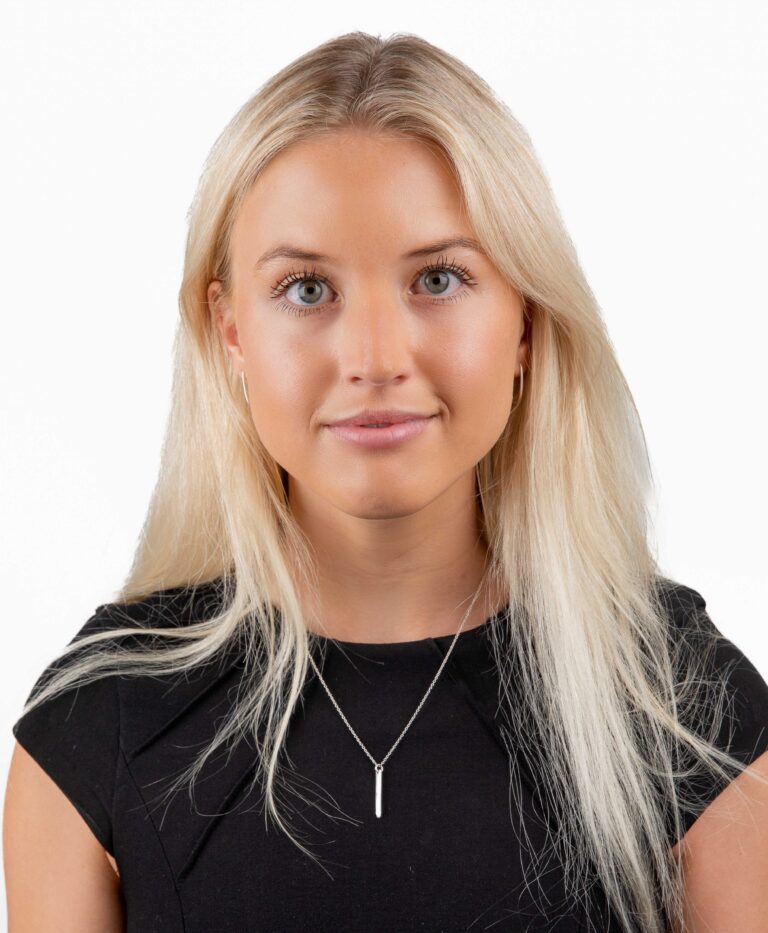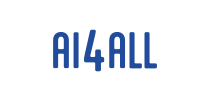In the Spotlight -
Meet Jacqueline Kazmaier
At AI4ALL we’d like to inspire others by featuring women role models who are making a difference in AI. We aim to empower women who are working in AI by highlighting their success stories. This way we hope to inspire other women and girls to get into STEM-related fields. In our series ‘In the Spotlight’ we shine a light on an expert in the field and today we’d like you to meet Jacqueline Kazmaier.
Written by Myrthe van den Berg

How Jacqueline turned Language Curiosity into AI for Good
Jacqueline Kazmaier has spent her career exploring how artificial intelligence can understand something as intricate as human language. This fascination began long before ChatGPT put a spotlight on language models. With a background in Industrial Engineering and a PhD in Machine Learning and Natural Language Processing, she has devoted the past eight years to the challenge of teaching computers to make sense of how people communicate.
Over time, her curiosity evolved into a mission to use technology for social good. For the past five years, Jacqueline has been applying her expertise in healthcare, which lies very close to her heart. Her goal: to help solve the workforce shortages and administrative burden that strain medical systems, while preventing the loss of valuable information that could make healthcare more equitable and effective. “I see that lost information as a missed opportunity,” she explained. “We need this information to improve diagnoses, share knowledge, and better align outcomes with incentives.”
She is originally from Namibia and South Africa and has German roots. In 2018, she met her cofounder in Cape Town, and together they built their company Autoscriber from the ground up. She also maintains strong ties to the Netherlands, which she describes as “an inspiringly entrepreneurial country.” Reflecting on her journey, she said, “I love being able not only to build products around emerging AI technologies but also to have been able to build a company around this, from zero to one.”
Her combination of technical curiosity, entrepreneurial drive, and human-centered purpose laid the foundation for the work that follows.
Making Care More Human with AI
Since 2020, Jacqueline and her co-founder have been building their AI-powered assistant to support doctors during consultations. “What started as a tool to automatically summarize doctor-patient conversations and structure key information into electronic patient records quickly grew into something much bigger,” she explained. Today, their platform spans multiple specialties, from general practitioners to psychologists to hospital specialists, and now includes smart, voice-controlled features that turns it into a proactive AI assistant.
The impact is clear. “Our published research shows that clinicians save at least 25 percent of administrative time,” Jacqueline emphasized. “That results in more time for patients, and it directly reduces the strain on healthcare teams.” But efficiency is only part of the story. “Seventy percent of our users report calmer, more meaningful interactions with patients. AI is not just about speed; it can make care more human.”
Her vision extends far beyond individual clinics. “We want to make this technology accessible across healthcare systems,” she said. Today, their platform is used by providers across the Benelux, DACH, and South Africa, supporting multiple languages and specialties.
“We want to make this technology accessible across healthcare systems,”
She also highlighted a milestone that underscores their pioneering approach. “We were the first AI integration into the Netherlands’ largest healthcare information system. Embedding AI directly into hospital workflows showed that technology can be a force for good.” National media coverage, from BNR to primetime television, amplified the achievement. “It is exciting to see Europe leading the way in AI solutions that make healthcare more accessible, efficient, and equitable,” Jacqueline added.
Reducing Burden, Empowering Clinicians
Healthcare faces an unprecedented workforce crisis. Doctors are burning out, patients often feel rushed, and valuable clinical knowledge is lost in unstructured notes. Jacqueline’s work directly tackles these challenges by harnessing AI to reduce administrative burden, free up time for patient care, and capture high-quality data that can be reused for research, innovation, and public health.
“We designed the technology to be multilingual, inclusive, and interoperable,” Jacqueline explained. “Our goal is to build systems that don’t just benefit doctors in one hospital, but strengthen health systems globally.” By structuring clinical data, her platform can help identify emerging diseases, support diagnostic decision-making, and reveal inequities in access and outcomes.
Jacqueline is clear about the purpose of AI in healthcare. “This is not about replacing clinicians,” she stressed. “It’s about empowering them and making sure that the information created in everyday practice contributes to better healthcare for everyone.”
© AI4ALL | 2026
